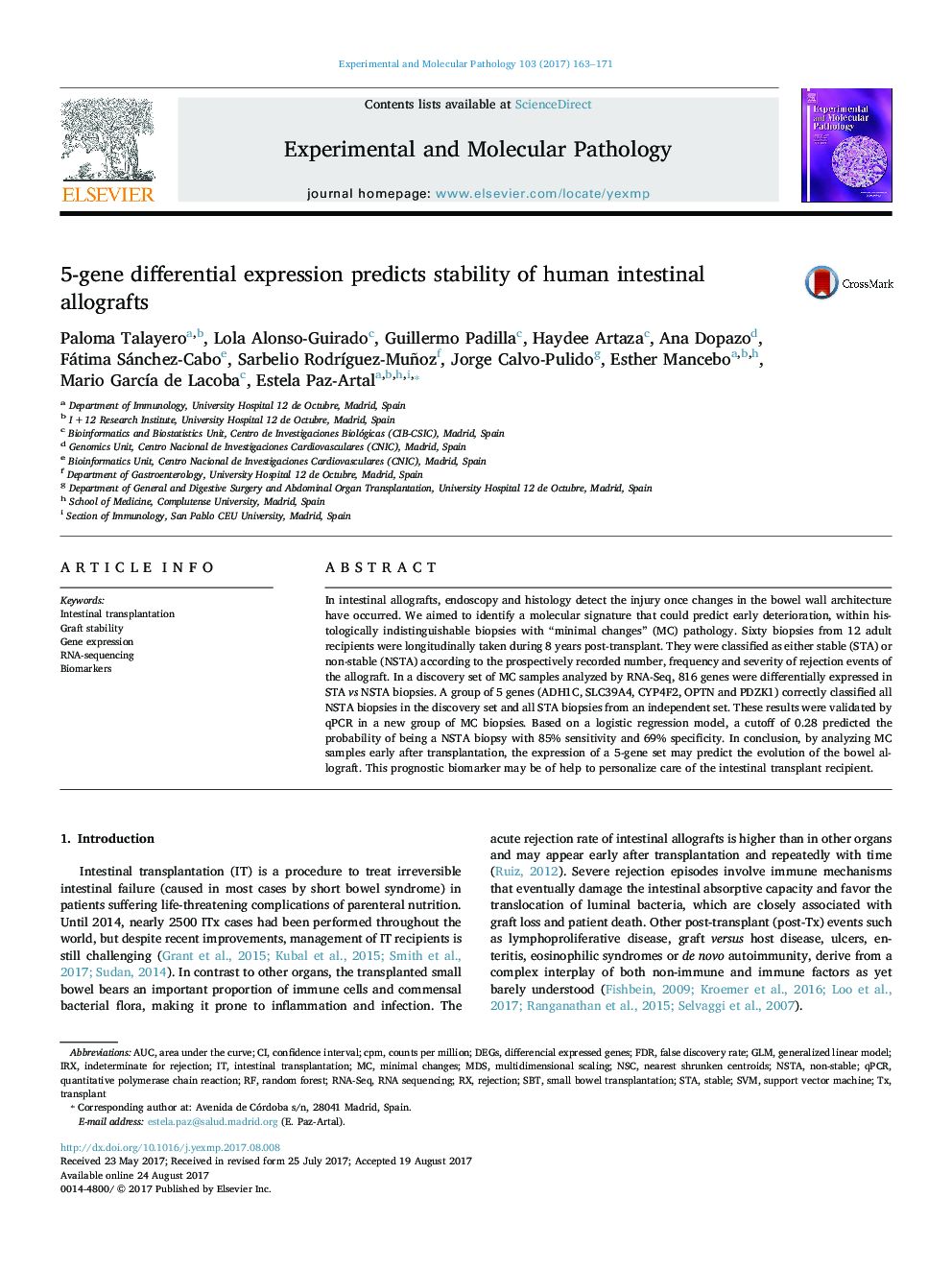| Article ID | Journal | Published Year | Pages | File Type |
|---|---|---|---|---|
| 5584373 | Experimental and Molecular Pathology | 2017 | 9 Pages |
Abstract
In intestinal allografts, endoscopy and histology detect the injury once changes in the bowel wall architecture have occurred. We aimed to identify a molecular signature that could predict early deterioration, within histologically indistinguishable biopsies with “minimal changes” (MC) pathology. Sixty biopsies from 12 adult recipients were longitudinally taken during 8Â years post-transplant. They were classified as either stable (STA) or non-stable (NSTA) according to the prospectively recorded number, frequency and severity of rejection events of the allograft. In a discovery set of MC samples analyzed by RNA-Seq, 816 genes were differentially expressed in STA vs NSTA biopsies. A group of 5 genes (ADH1C, SLC39A4, CYP4F2, OPTN and PDZK1) correctly classified all NSTA biopsies in the discovery set and all STA biopsies from an independent set. These results were validated by qPCR in a new group of MC biopsies. Based on a logistic regression model, a cutoff of 0.28 predicted the probability of being a NSTA biopsy with 85% sensitivity and 69% specificity. In conclusion, by analyzing MC samples early after transplantation, the expression of a 5-gene set may predict the evolution of the bowel allograft. This prognostic biomarker may be of help to personalize care of the intestinal transplant recipient.
Keywords
Irxcounts per millionSBTqPCRDEGsSTAMDSNSCRNA-seqFDRCPMGLMAUCGene expressionRNA sequencingRNA-sequencingRandom forestRejectionconfidence intervalSVMSupport vector machineGeneralized linear modelMultidimensional scalingarea under the curvefalse discovery rateBiomarkersquantitative polymerase chain reactionStableTransplantIntestinal transplantationSmall bowel transplantation
Related Topics
Life Sciences
Biochemistry, Genetics and Molecular Biology
Clinical Biochemistry
Authors
Paloma Talayero, Lola Alonso-Guirado, Guillermo Padilla, Haydee Artaza, Ana Dopazo, Fátima Sánchez-Cabo, Sarbelio RodrÃguez-Muñoz, Jorge Calvo-Pulido, Esther Mancebo, Mario GarcÃa de Lacoba, Estela Paz-Artal,
